NIGHT SWIM (2024)
A woman swimming in her pool at night is terrorised by an evil spirit.
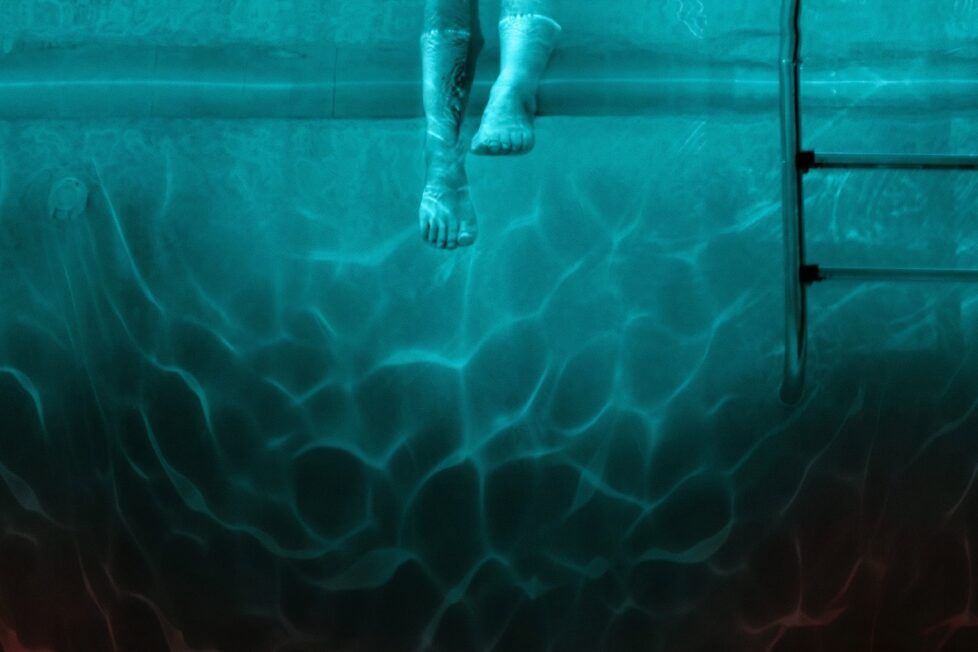
A woman swimming in her pool at night is terrorised by an evil spirit.


Dark waters have always prompted vivid imaginations—anything could be lurking in the deep. Slimy surfaces transcend being merely gross; they morph into something utterly insidious, hinting at unseen things that brush against your leg with both sentience and malice. We have no logical reason to leap to such conclusions, yet the unknown sparks such frenzied flights of fancy. Few things in life are more frightening than the chilling creations of our own imaginations.
Unfortunately for director Bryce McGuire, the same could be said of his latest film, Night Swim, adapting his own 2014 short film—it’s not as scary as I’m sure he envisioned it being.
In 2024’s first horror film, the Waller family faces a sinister entity. Ray Waller (Wyatt Russell), an ex-baseball player forced to retire due to declining health, moves with his wife Eve (Kerry Condon) and their two children, Izzy (Amélie Hoeferle) and Elliot (Gavin Warren), to a charming, affordable suburban house. A large swimming pool seems perfect for Ray’s water therapy, though it soon becomes clear that there is something supernaturally malign in the waters…
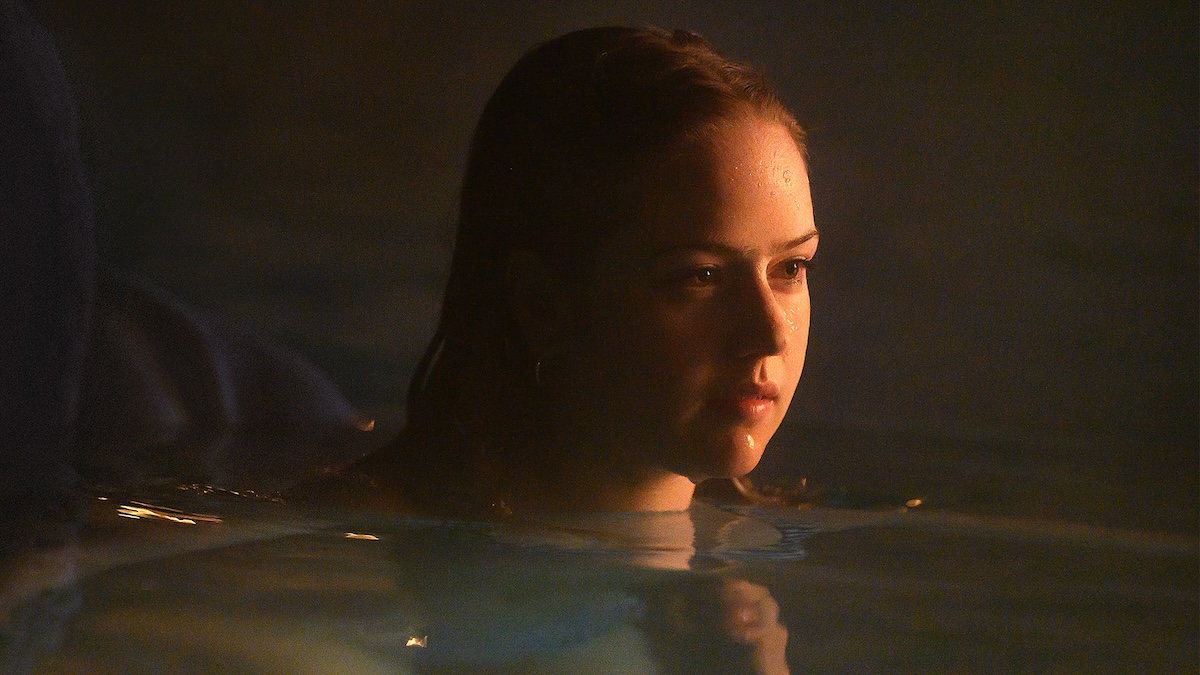
In his directorial debut, McGuire finds a few strong moments. However, while featuring some genuinely good scares, Night Swim suffers from poor pacing, trite genre tropes, and screenplay lapses. These flaws unforgivably squander moments of great horror, and momentum is irrevocably lost. Consequently, the movie feels like a muddled work, where the audience is left to tread water in between mostly predictable frights.
The film’s early stages suggest McGuire’s intent to tackle philosophical questions through a watery leitmotif. Why are we afraid of the unknown? What is it about great depths that truly frightens us? And why are we drawn to power, regardless of the malignant effect it may have? Unfortunately, McGuire makes no genuine attempt to answer these questions, and the ideas dissipate early on, becoming lost in the murky pool.
The story’s core theme is the potential within us, which, it suggests, can only be unlocked through sacrifice. The deep, opaque reservoir could be interpreted as symbolic for the soul or the human psyche, possessing both untold power and terrible secrets. However, it’s difficult to tell if McGuire intended on this reading. With so much in the story being tonally inconsistent, I question such thought was put into any underlying allegory or metaphor. If it was, then any dedication to theme and symbolism is subsequently abandoned.
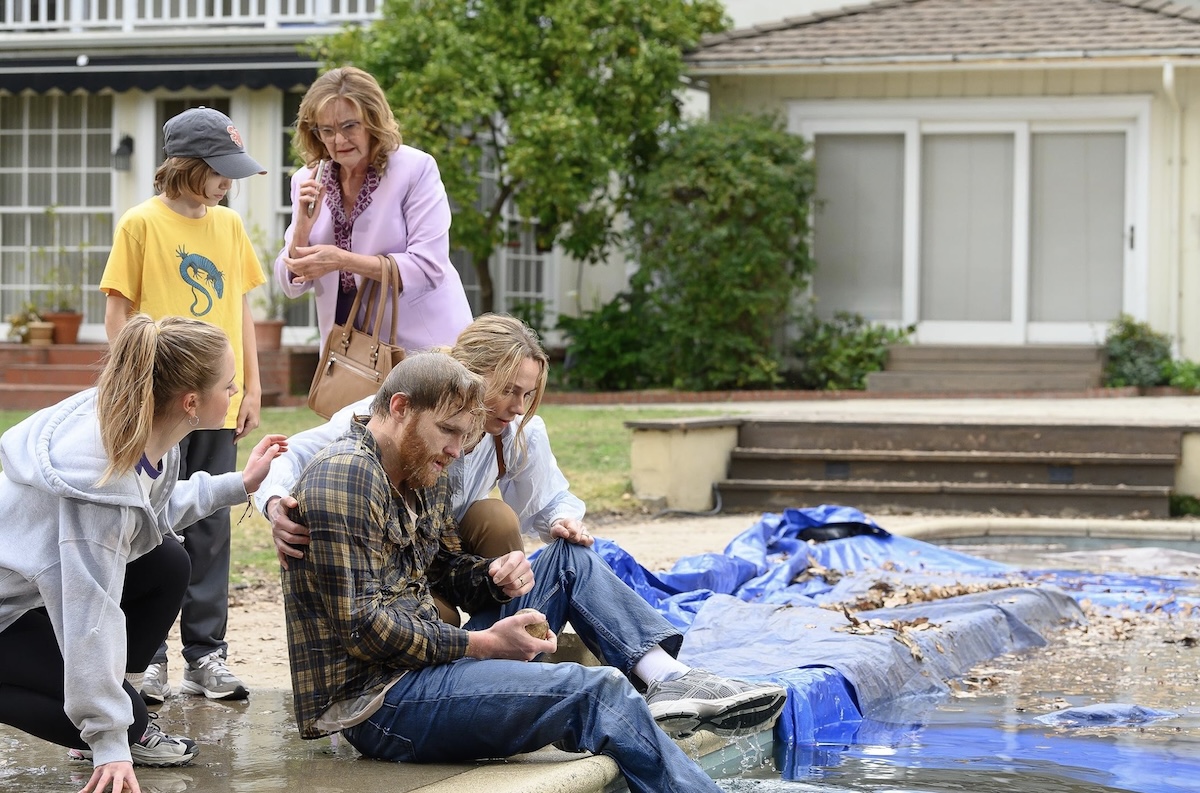
Rather than resonating with the audience, McGuire seems content to trudge through a rote horror plot. We’ve seen it all before: a family moves into a new house, discovers something sinister, and attempts to resolve it with middling results. Night Swim fails to join the ranks of this new generation of cinematic horror. It lacks the genre-redefining boldness of Ari Aster, Robert Eggers, or Jennifer Kent, instead echoing the predictable scares of early 2000s horror—hardly a badge of honour. Instead of Hereditary’s (2018) chilling psychological complexity, Night Swim leans closer to Final Destination’s (2000) reliance on contrived plot devices and characters making mind-numbing decisions solely to propel the narrative forward.
The film’s haunted swimming pool premise is itself a difficult sell. On the surface, it seems easily fixed: simply avoid the water. Of course real-life logic may not apply in Night Swim‘s diegetic world, as its absence would stall the plot entirely. However, this readily apparent solution raises concerns about a potentially glaring plot hole that writer and director Bryce McGuire neglected to address. Furthermore, the children’s blasé attitude towards this obviously cursed entity ranges from puzzling to entirely unbelievable. Their lack of action feels discordant with the film’s tone and undermines the supposed stakes.
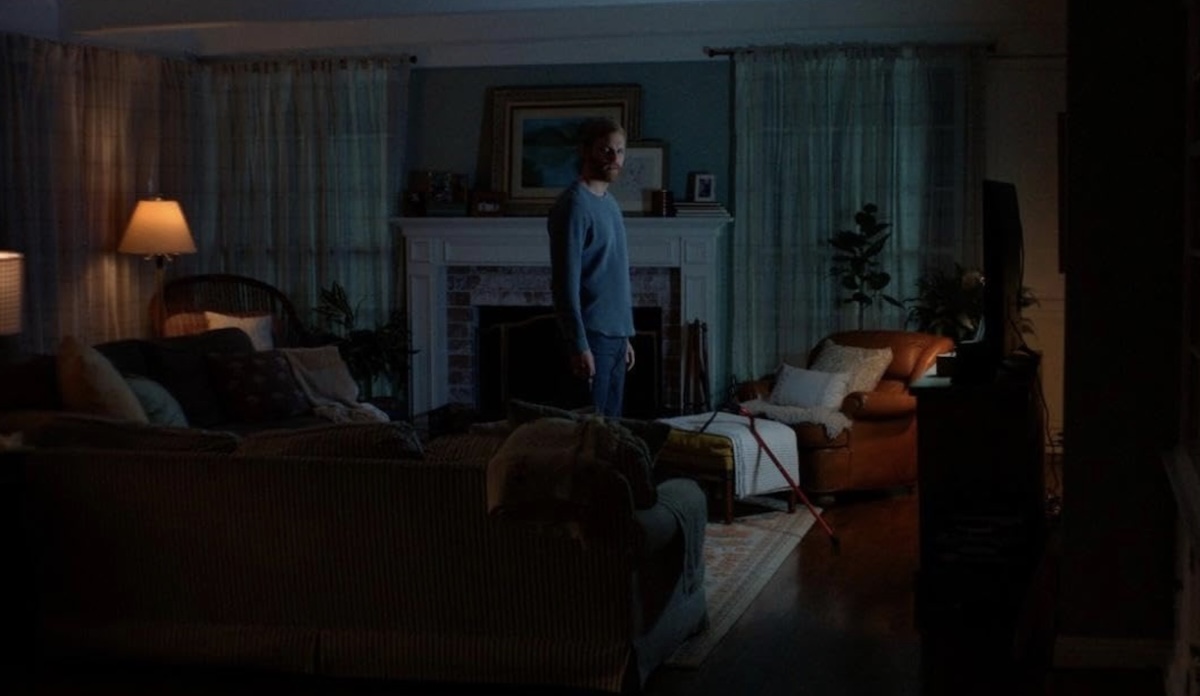
Once Eve becomes convinced something’s afoot, she plunges into what’s swiftly becoming my least favourite horror trope: unearthing the previous victims of the evil. While this worked brilliantly in Smile (2022), here it feels shoehorned in, a lazy way to dump late exposition. The exploration happens far too late in the story, yanking our attention away from more pressing plot threads. Instead of a stunning revelation, it becomes a confusing digression.
The film’s pacing ultimately emerges as one of its key weaknesses. Night Swim boasts several genuinely frightening moments, some potent enough to ignite hope for a dramatic improvement in the overall quality. However, as the story unfolds, these scares grow increasingly infrequent and less inventive. We can only see so many obscured visions of someone standing by the pool before it lacks oomph.
These predictable jump scares feel not only silly, but also bewilderingly ineffective. Much like in It (2017), the danger these ghouls present is inversely proportional to their distance from the protagonists; while threatening from afar, as they get close enough to harm the principal characters, they simply don’t. Their only menacing act is a spectral “Boo!” followed by a disappearance back into the pool or a casual stroll away. This lack of consequence strips the horror of its tension, leaving the film less thrilling than it deserves. Instead of capitalising on the numerous opportunities to drown a member of the Waller family, these aquatic adversaries inexplicably spare them. McGuire offers no explanation for this baffling restraint, leaving one to suspect shoddy writing as the culprit.
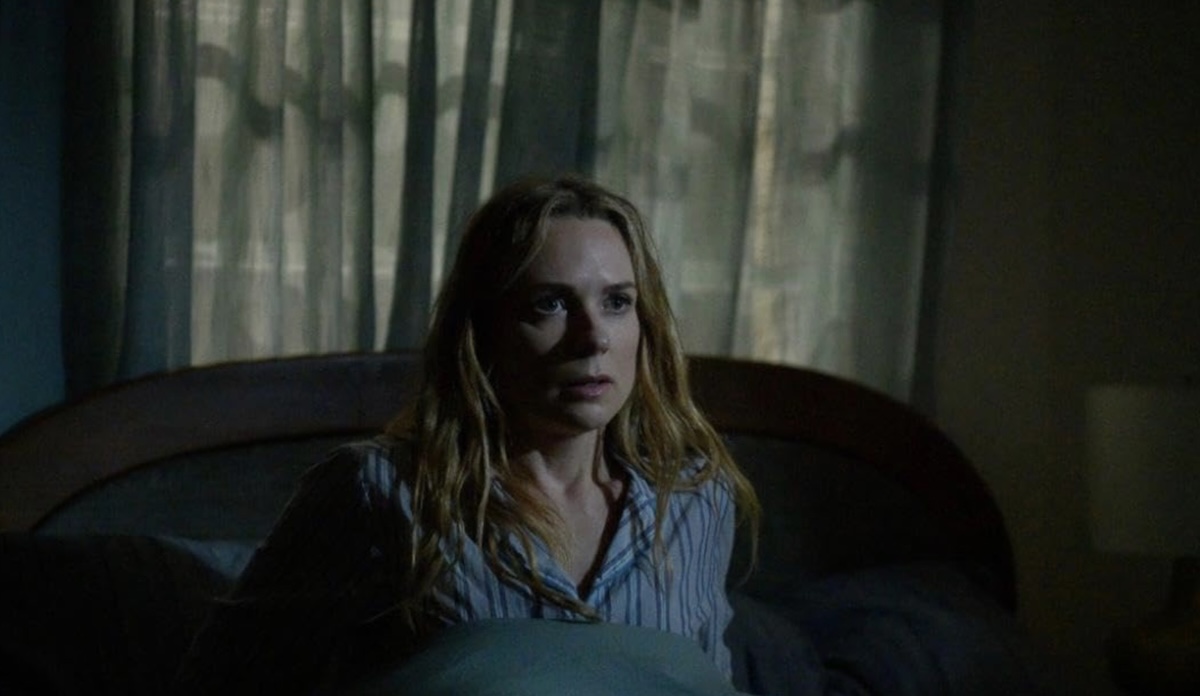
McGuire appears to conflate fleeting jump scares with an overarching sensation of genuine terror, as the story is woefully lacking of chilling atmosphere. This is partly due to an uneven script that oscillates between patchy and laughable. The actors occasionally stumble when delivering earnest lines, burdened by the script’s blatantly awkward dialogue. These scenes suggest McGuire’s original short film simply didn’t have the narrative potential to be a full-length feature and perhaps should have remained a four-minute fright.
Kerry Condon, despite her recent Academy Award nomination, bears the brunt of these writing nadirs. A forced monologue about childbirth directed at her daughter feels jarring and irrelevant to the plot’s immediate thread. Similarly, the closing scene dialogue defies any semblance of logic. It’s crucial to clarify that Condon’s performance is blameless; she navigates this often-poor material with admirable talent.
Wyatt Russell’s performance as Ray is a little less commendable. His insouciant demeanour pervades the entire narrative, rarely aligning with the tone of the scene and leaving one puzzled about McGuire’s and his intentions. Besides that, his portrayal of a convalescent lacks conviction, failing to convey the expected anguish at his predicament. This results in a rather bland rendition of an ex-athlete infused with supernatural power. Fortunately, Amélie Hoeferle and Gavin Warren deliver believable portrayals and ensure that the majority of the film’s moments at least feel authentic, even if not necessarily spooky.
The film’s shot composition often feels uninspired, heavily relying on close-ups where wider angles could have opened doors for more creative horror. However, cinematographer Charlie Sarroff excels in certain sequences. A couple of canted angles, shown from the perspective of someone swimming in the pool, effectively deliver jolts of terror. Unfortunately, these are rare and the portentous effect they have is fleeting; frequently, McGuire cuts away before their ominous aura can fully build.
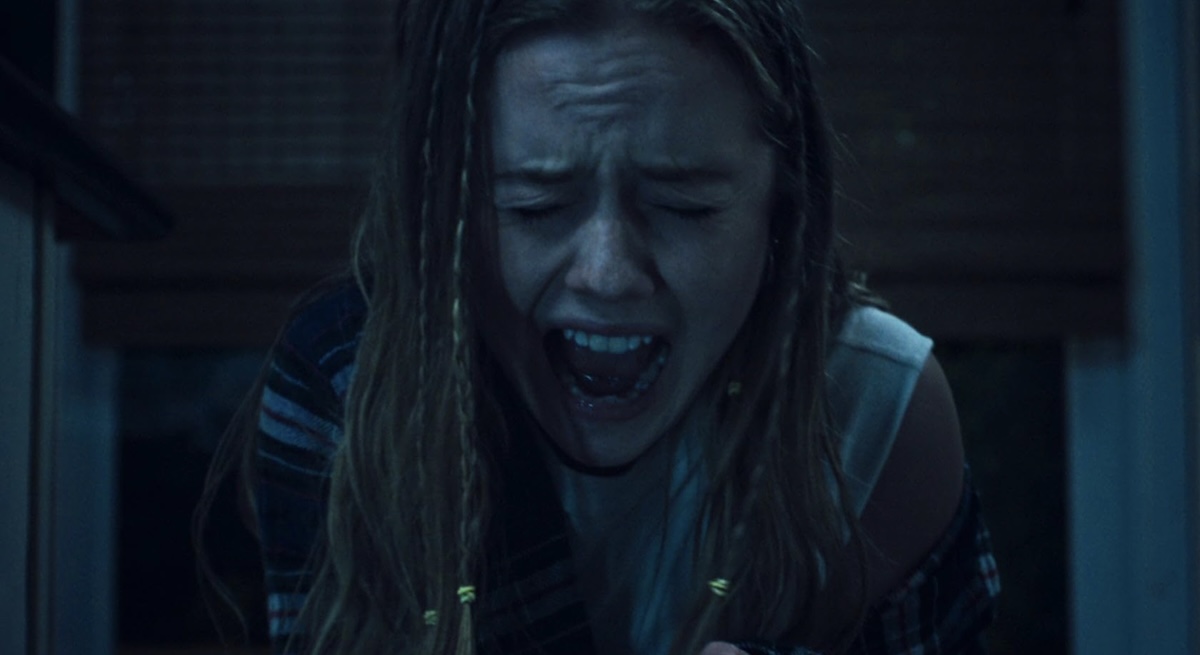
While the editing in the film is passable, its frenetic pace ultimately sabotages any possibility of suspense or genuine dread. Editor Jeff McEvoy cuts to and fro at a breakneck pace, too quick to cultivate any foreboding. Instead of letting sequences build and simmer with menace, they become choppy and rushed, predictably losing their sting. This frantic approach may offer a faster pace, but it comes at the cost of a chilling atmosphere and makes for a less compelling picture.
Overall, while Night Swim isn’t a triumph, it doesn’t sink Bryce McGuire’s potential. For a debut feature, it shows flashes of promise, even delivering some laudable scares that justify the price of admission. The premise is intriguing — intermittently — and though it often lulls into tedium, there is at least a bit of originality in the plot, even if it is scant. But ultimately, McGuire cannot overcome his weak script and overreliance on hackneyed tropes to turn this into an out and out triumph, making Night Swim a disappointing film. Let’s hope he doesn’t try and make Marco Polo scary next time around.
USA | 2024 | 98 MINUTES | 2.39:1 | COLOUR | ENGLISH

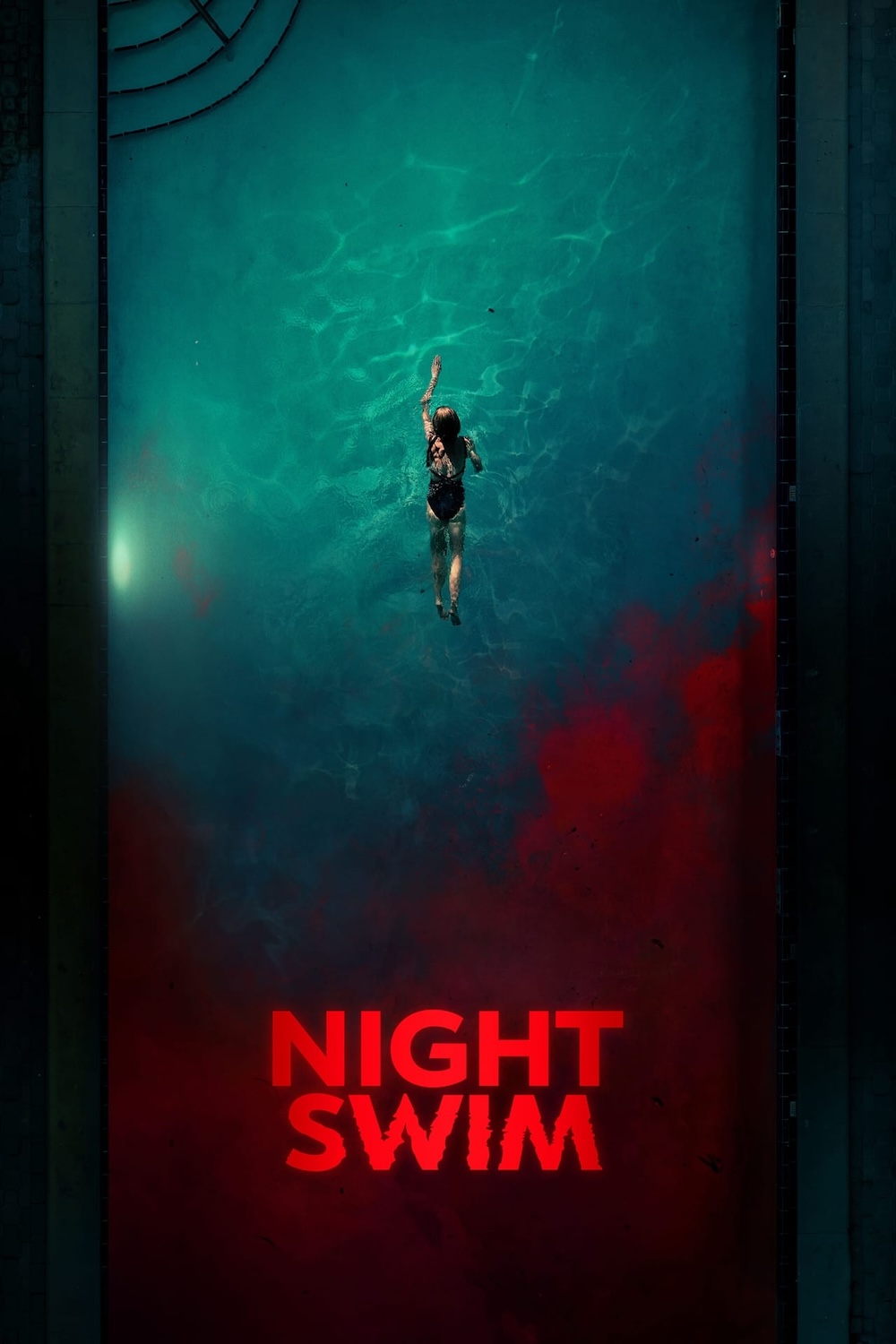
director: Bryce McGuire.
writer: Bryce McGuire (story by Bruce McGuire & Rod Blackhurst; based on the short film by Bryce McGuire & Rod Blackhurst).
starring: Wyatt Russell, Kerry Condon, Gavin Warren, Amélie Hoeferle & Jodi Long.
